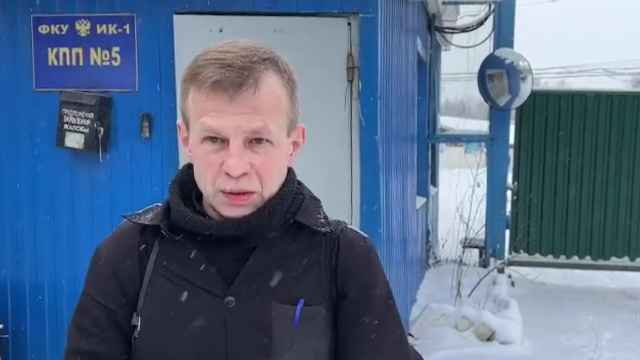EUGENE, Oregon — U.S. prosecutors said the founder of the U.S. branch of an Islamic charity accused of trying to smuggle $150,000 to Islamist militants in Chechnya took extreme steps to leave no paper trail.
But defense lawyers countered that tax-form mistakes key to the prosecutors’ case were made by the charity’s accountant, not the defendant.
Pete Seda, also known as Pirouz Sedaghaty, is in a U.S. District Court on charges of conspiracy, tax fraud and failing to report sending $150,000 out of the country. He has pleaded not guilty, contending that the money was for Chechen refugees, not Islamist militants.
Assistant U.S. Attorney Chris Cardani told jurors in opening statements Monday that Seda, an Iranian immigrant and naturalized U.S. citizen, became the boss of the U.S. chapter of Al-Haramain Islamic Foundation Inc., a charity based in Saudi Arabia. Cardani said the foundation was based on a radical form of Islam that distributed Qurans calling for holy war and was dedicated to helping Islamist militants battling federal forces in Chechnya.
“One of the things you can’t do if you are a charity in the United States is fund acts of violence,” Cardani said. “The government is not accusing Mr. Sedaghaty of being a terrorist.”
Defense attorney Larry Matasar said Seda’s father, an Iranian colonel, sent him to the United States in the 1970s when the shah was deposed. There, Seda Americanized his name, started a business as a tree surgeon, married, raised two sons and started his own charitable foundation distributing copies of the Quran to prison inmates.
A horse trainer friend who traveled to Saudi Arabia connected Seda to Soliman Al-Buthe, who as head landscaper for the city of Riyadh, Saudi Arabia, also had an interest in trees, Matasar said. Al-Haramain eventually supplied $188,000 to buy a prayer house in Ashland, where Seda lived and ran the foundation’s local branch.
“The evidence will not show Pete Seda was some kind of evil fundamentalist conspiring against the United States government to cheat on his taxes or fund mujahedin fighters in Chechnya,” Matasar said. “Simply, what they have is a kind of guilt by association.”
The U.S. government declared Al-Haramain a terrorist organization, seizing and selling its assets, including the house in Ashland that served as U.S. headquarters for the charity and Seda’s home. The Saudi government dissolved the parent organization.
When an Egyptian donor in London, Mahmoud El Fiki, wanted to send $150,000 to help Islamist militants in Chechnya in March 2000, he wired it to the U.S. branch of Al-Haramain’s bank account in Oregon, Cardani said. Then Al-Buthe, the “money guy” for Al-Haramain, flew from Saudi Arabia to Oregon. In Oregon, Seda helped Al-Buthe convert the money to $130,000 in traveler’s checks and a $21,000 cashier’s check, which Al-Buthe flew with to Riyadh and deposited in a bank. Al-Buthe was indicted along with Seda but cannot be extradited from Saudi Arabia.
If the money had been meant for peaceful purposes, it would have been far easier and less expensive to wire the money to Saudi Arabia, Cardani said.
Cardani said Seda took further steps to conceal the trail, lying to his accountant that the money was used to buy a prayer house in Missouri and telling the accountant an inflated value for the house that was reported on a tax form.
Matasar said the accountant Seda hired to keep Al-Haramain’s books made a series of errors in filing tax reports, including one with the inflated value of the prayer house. Seda’s desire to help Muslims in Chechnya was driven by reading news accounts, not by any doctrine from Al-Haramain, he said.
A Message from The Moscow Times:
Dear readers,
We are facing unprecedented challenges. Russia's Prosecutor General's Office has designated The Moscow Times as an "undesirable" organization, criminalizing our work and putting our staff at risk of prosecution. This follows our earlier unjust labeling as a "foreign agent."
These actions are direct attempts to silence independent journalism in Russia. The authorities claim our work "discredits the decisions of the Russian leadership." We see things differently: we strive to provide accurate, unbiased reporting on Russia.
We, the journalists of The Moscow Times, refuse to be silenced. But to continue our work, we need your help.
Your support, no matter how small, makes a world of difference. If you can, please support us monthly starting from just $2. It's quick to set up, and every contribution makes a significant impact.
By supporting The Moscow Times, you're defending open, independent journalism in the face of repression. Thank you for standing with us.
Remind me later.





